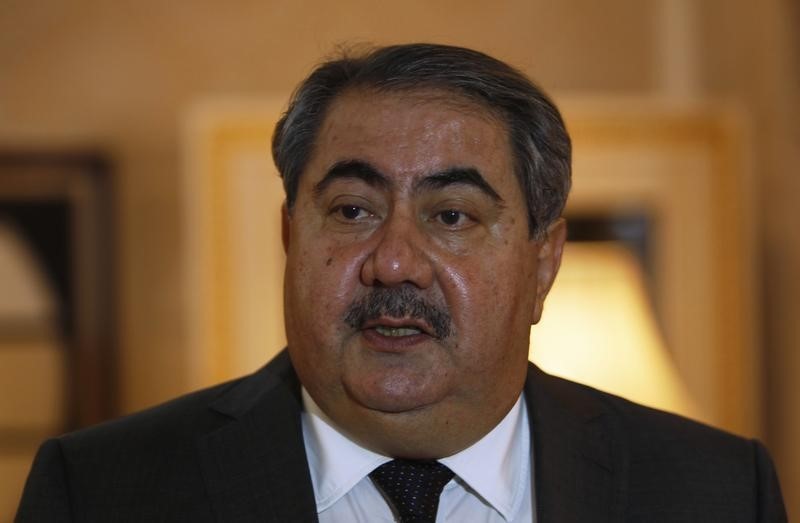By Michael Georgy
BAGHDAD (Reuters) - Iraq's finance minister called for deep-rooted reforms to stamp out corruption in a military that collapsed in the face of an Islamic State advance, as he prepares to spend nearly a quarter of the 2015 budget on defence.
Hoshiyar Zebari will push for about 23 percent of a proposed 2015 budget of $100 billion(63.41 billion pounds) to be poured into defence and security when it is presented to Iraq's cabinet "very soon".
Iraq has not published spending figures for this year, but according to the Stockholm International Peace Research Institute, Baghdad spent $7.9 billion on defence in 2013. The United States has also provided money and equipment since pulling the last of its forces out of Iraq in 2011.
When Islamic State fighters swept through northern Iraq in June, they were almost unopposed by Iraqi soldiers. U.S.-led air strikes have since helped Iraqi forces retake some territory.
While stressing that the security forces deserve support to counter what is seen as the world's most ruthless militant group, Zebari said tighter controls were needed.
"Definitely we will recommend strongly that there should be some serious deep-rooted reforms in the military security establishment to fight corruption, mismanagement," he told Reuters in an interview conducted on Thursday.
"But at the same time, the military has to be cleaned of all these numbers, figures of ghost soldiers and other mismanagement."
Ghost soldiers are enrolled men who do not turn up and fight but whose salaries go into the pockets of the commanders. The phenomenon has been associated with the collapse of the army during Islamic State's sweep through the north.
"Definitely there has to be checks and balances. All the formations have to be reviewed in terms of the numbers. There should be no ghost members of the military," Zebari said.
"People should be accountable. Your battalion, the number of your members should be accounted for, for weapons or salaries, for munitions for food. These are basic things it doesn't need a genius (to understand)."
Iraq's sectarian civil war, fuelled by the ultra-hard line Sunni Muslim Islamic State, has complicated efforts to forge a military strategy against the insurgents.
Aside from violence between majority Shi'ites and Sunnis, tensions between the Kurds in the semi-autonomous north and the Baghdad government have further fragmented the country.
Zebari, a Kurd, said a recent deal with Baghdad had reduced frictions over Kurdish oil exports. Other reconciliation efforts are moving slowly, including plans to build a National Guard that can incorporate all sects and communities.
"They are still in the realm of discussion, of exchanging ideas to finding the right formula to kicking off this project."
Zebari does not have to look far for a reminder of the kind of damage Islamic State's predecessors, al Qaeda, inflicted in Iraq. A truck bomb close to the ministry killed at least 28 people in 2009.
The finance minister said no one should expect magic results in the military and security forces, adding: "This will take time until the situation is stabilized, until they perform and show their capabilities in the battlefield."
He seemed optimistic that the tide is turning in the war against Islamic State, which has declared a caliphate in parts of Iraq and Syria it controls.
Zebari said the group could no longer engage in stand-up battles against Iraqi forces because any prolonged fighting makes them vulnerable to U.S. air strikes.
But he warned that Islamic State was still highly effective at making and planting roadside bombs and booby-trapping houses. The group is also lethal because it can multi-task using conventional warfare, guerrilla tactics and suicide bomb squads.
"After all these years nobody wants to see a caliphate of hatred. They are no longer an existential threat to our existence. They are still a very very serious threat," said Zebari.

"How long it will take? I don't have the crystal ball to tell you. It will take some time. I think we are winning, they are losing."
(Editing by Catherine Evans)